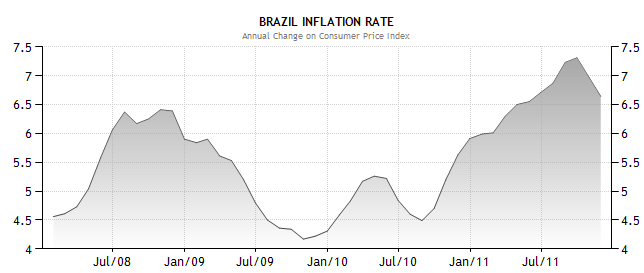Rethinking Daycare: A Parent's Honest Assessment

Table of Contents
The Financial Burden of Daycare
The cost of daycare is a significant factor for most families. Understanding the financial implications is crucial before making a decision.
Cost vs. Quality: Navigating the Price Tag
Finding affordable daycare is a challenge for many parents. The cost of daycare varies widely depending on location, type of care (in-home vs. center-based), and the child's age. The financial strain can be substantial, often exceeding the cost of college tuition in some areas.
- Average daycare costs per state/region: Costs vary dramatically. For example, in some major metropolitan areas, monthly fees can easily exceed $1,500, while in rural areas, they may be closer to $800. Research your local average to budget effectively.
- Hidden fees: Be aware of potential hidden fees such as registration fees, supply fees, and late pick-up charges, which can significantly add to the overall cost. Always clarify the complete fee structure upfront.
- Potential for financial strain on families: Daycare expenses can often consume a substantial portion of a family's income, leaving little room for other essentials or savings. Consider the long-term financial implications before committing.
This highlights the importance of exploring options for affordable daycare and childcare expenses.
Exploring Financial Aid Options
Fortunately, several resources can help alleviate the financial burden of daycare. Exploring these options can make high-quality childcare more accessible.
- Government assistance programs: Many states offer subsidized daycare programs for low-income families. These programs provide financial assistance to help cover daycare costs. Eligibility requirements vary by state and income level.
- Employer subsidies: Some employers offer daycare subsidies or on-site daycare facilities as employee benefits. Check with your Human Resources department to see if this is an option for your family.
- Other financial support: Look into local non-profit organizations, community programs, and faith-based initiatives that may provide financial assistance or scholarships for daycare.
Assessing Daycare Quality: Beyond the Pretty Facade
While a clean and aesthetically pleasing facility is important, the quality of a daycare goes far beyond appearances. A thorough assessment is necessary to ensure your child receives the best possible care.
Teacher-Child Ratios and Qualifications
Appropriate teacher-child ratios and qualified staff are critical for a positive and safe learning environment.
- Ideal ratios for different age groups: State regulations dictate minimum ratios, but aiming for lower ratios, especially for infants and toddlers, ensures more individualized attention and care. Look for facilities that exceed the minimum requirements.
- Required certifications and educational backgrounds: Inquire about the staff's qualifications and certifications. Experienced and well-trained teachers are essential for providing high-quality care and education. Look for teachers with relevant educational backgrounds in early childhood education.
Curriculum and Learning Environment
A stimulating and enriching learning environment is key to your child's development.
- Importance of play-based learning: Play is crucial for a child's cognitive, social, and emotional development. Look for a daycare that incorporates play-based learning as a core component of its curriculum.
- Structured activities: While play is important, a well-rounded curriculum should also include structured activities that promote learning and skill development.
- Age-appropriate curriculum: Ensure the curriculum is tailored to your child's age and developmental stage, catering to their specific needs and interests. A daycare focused on best daycare practices will have well-defined age-appropriate curriculums.
Safety and Security Measures
The safety and security of your child should be the top priority when choosing a daycare.
- Security cameras: Security cameras provide an added layer of security and allow parents to monitor the daycare remotely.
- Background checks for staff: Verify that all staff members have undergone thorough background checks. This ensures a safe and secure environment for the children.
- Emergency evacuation plans: Inquire about the daycare's emergency evacuation plans and safety procedures to ensure your child's safety in unforeseen circumstances. A well-structured safe daycare environment will emphasize this.
The Emotional Impact on Child and Parent
Choosing a daycare has an impact on both the child and the parent's emotional well-being.
Separation Anxiety and Child Adjustment
Separation anxiety is common when children start daycare.
- Signs of separation anxiety: Observe your child for signs of anxiety, such as clinging, crying, or refusing to let go.
- Tips for parents: A gradual transition, frequent communication with the teachers, and comforting routines can help ease separation anxiety.
- Importance of a gradual transition: A gradual introduction to the daycare setting helps children adjust more smoothly.
Parental Guilt and Stress
Parents often experience guilt and stress related to leaving their child in daycare.
- Strategies for managing guilt: Acknowledge your feelings, connect with other parents, and remind yourself that choosing daycare often allows you to provide better for your family.
- Importance of self-care: Prioritize self-care to manage stress. This might involve exercise, relaxation techniques, or spending quality time with your partner or friends.
- Seeking support from other parents: Connecting with other parents who have similar experiences can provide comfort and support.
Conclusion
Choosing the right daycare requires careful consideration of various factors beyond just cost. This honest assessment highlights the crucial aspects of financial planning, quality assessment, and the emotional well-being of both child and parent. By carefully weighing these considerations and actively engaging in the selection process, parents can find a daycare that best meets their family’s needs and supports their child's healthy development. Remember, thoroughly researching and visiting potential daycares is vital before making a decision. Don't hesitate to ask questions, trust your instincts, and choose the daycare that feels right for your family. Rethinking your daycare choices empowers you to make informed decisions for your child's future.

Featured Posts
-
 Wynne Evans Health Update Really Nasty Illness And Showbiz Return Hints
May 09, 2025
Wynne Evans Health Update Really Nasty Illness And Showbiz Return Hints
May 09, 2025 -
 Jeremy Clarksons Plan To Save F1 Ferrari Dsq Fears Resurface
May 09, 2025
Jeremy Clarksons Plan To Save F1 Ferrari Dsq Fears Resurface
May 09, 2025 -
 Analysis Of Indias Improved Global Power Ranking Overtaking Uk France And Russia
May 09, 2025
Analysis Of Indias Improved Global Power Ranking Overtaking Uk France And Russia
May 09, 2025 -
 Addressing The Controversy Benson Boone And Harry Styles Musical Styles Compared
May 09, 2025
Addressing The Controversy Benson Boone And Harry Styles Musical Styles Compared
May 09, 2025 -
 Palantir Technologies Stock Should You Invest Before May 5th
May 09, 2025
Palantir Technologies Stock Should You Invest Before May 5th
May 09, 2025
